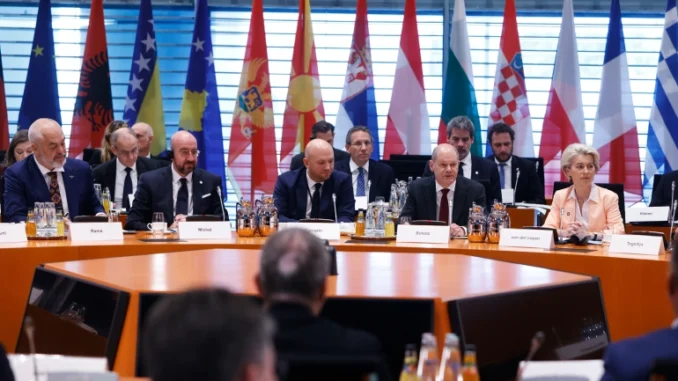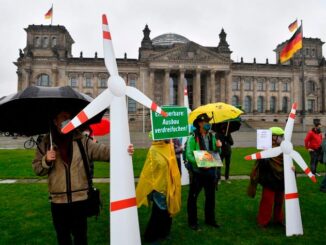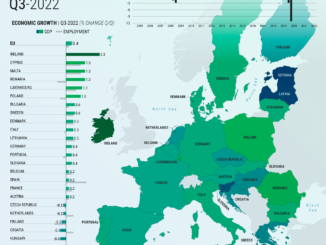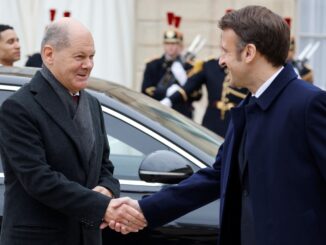
German Chancellor Olaf Scholz has told leaders of six Balkan countries aspiring to join the European Union that “it is high time to overcome regional conflicts” and stand together as Russia wages war in Ukraine.
Scholz and the EU’s top officials – Ursula von der Leyen and Charles Michel – joined leaders from Serbia, Kosovo, Bosnia and Herzegovina, Montenegro, North Macedonia and Albania on Thursday for the Western Balkans Summit in Berlin.
Addressing the meeting, he said the six countries “belong to the free and democratic part of Europe” and highlighted the need to deliver on their longstanding desire to join the EU, which he described as being in the bloc’s “interest”.
“The stability and prosperity of your region cannot be detached from the stability and prosperity of Europe as a whole,” Scholz said.
The parties are expected to sign agreements on easing regional travel arrangements and mutual recognition of academic qualifications at the summit. They are also expected to discuss energy issues.
But, with tension brewing again between Serbia and Kosovo this week, Scholz said the nations themselves need to overcome problems that have slowed their path to the EU and pointed to “a sense of urgency”.
“Russia’s brutal war of aggression against Ukraine forces us to stand together to preserve Europe’s freedom and security,” Scholz said. “It is high time to overcome regional conflicts that have continued for far too long – conflicts that divide you and hold your countries back on your European path.”
“The normalisation process between Serbia and Kosovo in particular must speed up, so let’s get it done,” he added. Serbia does not recognise its former province’s 2008 declaration of independence.
Alongside regional reconciliation and cooperation, “the challenges of irregular migration, corruption and organised crime are crucial issues for all of us,” Scholz said, adding that the Balkan countries’ commitment to align visa policies with those of the EU is “essential in this context”.
Germany and others have been pushing Serbia in particular to tighten its entry policies as an increasing number of migrants and refugees have tried to reach wealthier Western European countries via the Balkans in recent months.



